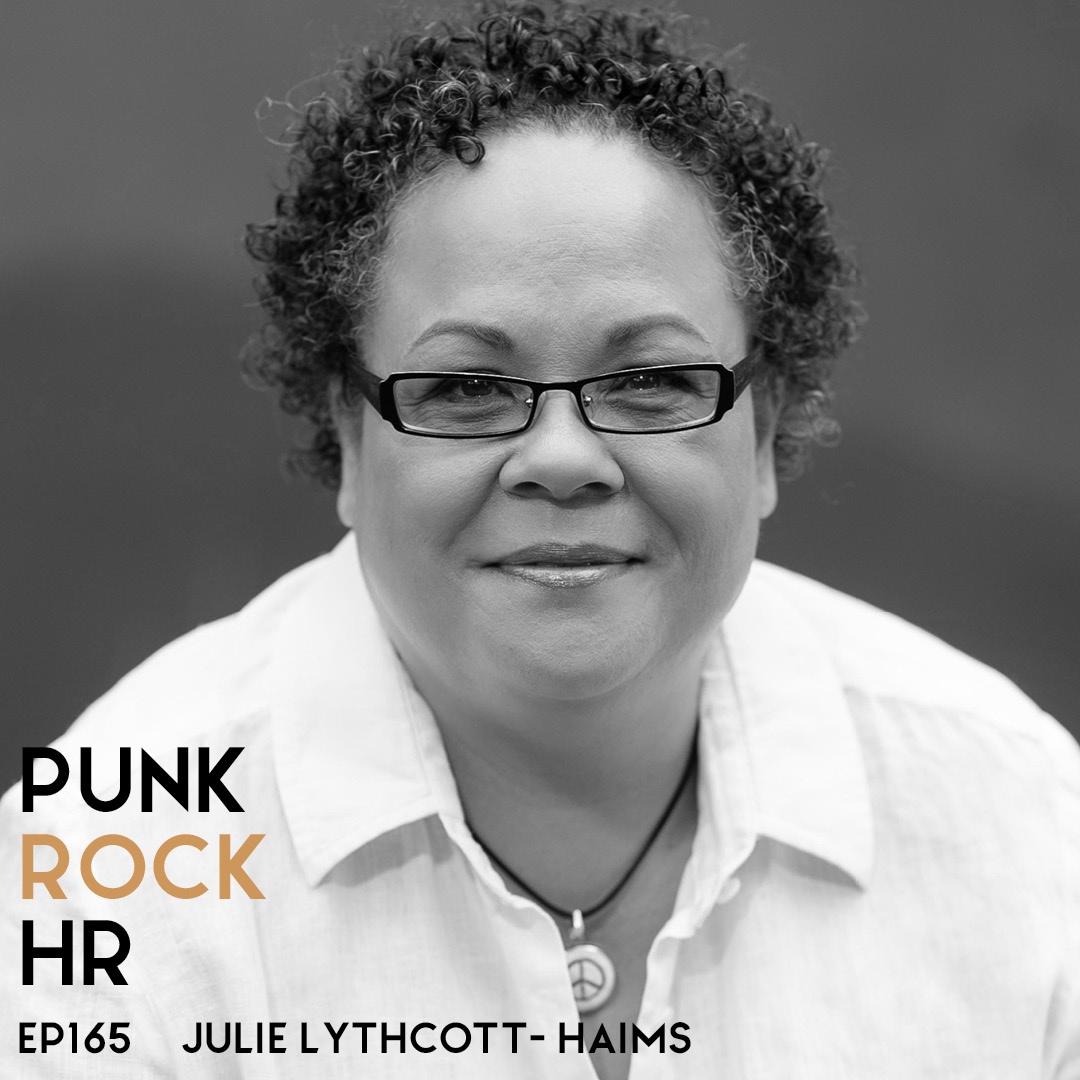
My guest today is New York Times bestselling author Julie Lythcott-Haims. She’s the author of the fantastic new book “Your Turn: How To Be An Adult.” It’s a book about adulting, but it’s also a book about overall character and integrity. She shares how you can show up and live a complete, authentic life — no matter how old you are.
Julie cares deeply for her fellow humans, and considers her life’s work to be helping others on their journeys and removing internal and external obstacles that hold them back. “I’m just rooting for all of us to make it in this one precious life,” she says. If you’re interested in hearing from Julie about forging an identity as an adult, learning to fend for yourself and developing character, you’re going to love this episode.
This episode of Punk Rock HR is sponsored by the Shift Career Summit on June 17. Mary Ellen Slayter of Managing Editor and I are bringing together some of the biggest names in the world of work to help you take control of your career. The event is completely free, and you can register today at ShiftDigitalCareers.com.
If you enjoy this conversation with Julie, you’ll be able to hear more from her during this event — she’ll be one of the opening speakers! We’ll see you there!
Rooting for Others
Julie cares deeply for everyone of all ages and the challenges they face during their growth, and she feels a particular affinity for the younger generations who may still be finding their footing in life. “I do for all humans, but my rooting is particularly for those of us still forming ourselves,” she explains. “That sense of ‘here’s who I am. Here’s why I’m on the planet. Here’s what I’m good at. Here’s what I love.’”
The goal of “Your Turn” is to provide some sort of guidance for the younger generations, particularly those who may have been over-parented and lack some of the skills that they need to become a fully grown adult in meaningful ways. According to Julie, her approach developed when she realized that the best way to convey this type of knowledge is to “shine, a warm light back on these younger folks who are struggling, just based on what you’ve learned based on your compassion, based on the stories you can tell of your own struggles and embarrassing shameful moments.” She also makes a point to tell stories from diverse perspectives, with those core points of adulting being something that can resonate with all readers.
Fending for Yourself
Tying into the idea of adulting is developing the ability to fend for oneself. Too often, you hear people underplay the value of this idea because they believe that they didn’t need to develop it as a skill at one point. This is particularly true when coming from older generations who act as if they were born knowing how to adult, such as being able to make their own appointments or get their oil changed, and didn’t have to learn from someone else about how to do it.
“Adulting is really so much more than just taking care of business. But taking care of business-slash-fending is certainly step No. 1,” Julie explains. She describes fending as the ability for someone to take care of their basic needs, like producing food and shelter, as well as being able to overcome the obstacles in one’s path. “They need to learn how to care about others’ needs alongside their own. They need to learn how to talk to strangers, because strangers often stand in between the young adult and what the young adult seeks.”
The responsibility of teaching children these fending skills falls squarely on older caregivers to share this knowledge. Instead of speaking condescendingly about how they believe young adults are unable to do anything themselves, they can instead focus their energy on teaching those skills, just as Julie does.
Character Carries Us Forward
In our conversation, Julie lays out the pillars of adulting: agency, resilience and character. Among those, she finds character to be the most important because we’re a social species. “A good character is like a red carpet that we can travel down, and it’ll open doors for us,” she says. “Your character is a decision you make. How to be with humans is entirely under your control in a world that is chaotic and throws us all kinds of curve balls. Your character is something you can always be in charge of and strengthen.”
How can a young adult work to develop character? One way is getting out of neutral and just going for it. In her book, Julie examines the ways that young adults remain stuck and fearful. “One of the things I address head-on is the extent to which so many young people hear ‘Keep your options open’, which becomes the paradox of choice,” she says. “That becomes paralyzing and produces anxiety. So I have a bias toward action, as anyone in Silicon Valley does. Take any door. See what happens. Learn from it. Evaluate, keep going.”
You only get better at adulting with practice, so take Julie’s advice. You are in control of your destiny as you become an adult, and there is nothing more detrimental to your development than failing to act.

You must be logged in to post a comment.